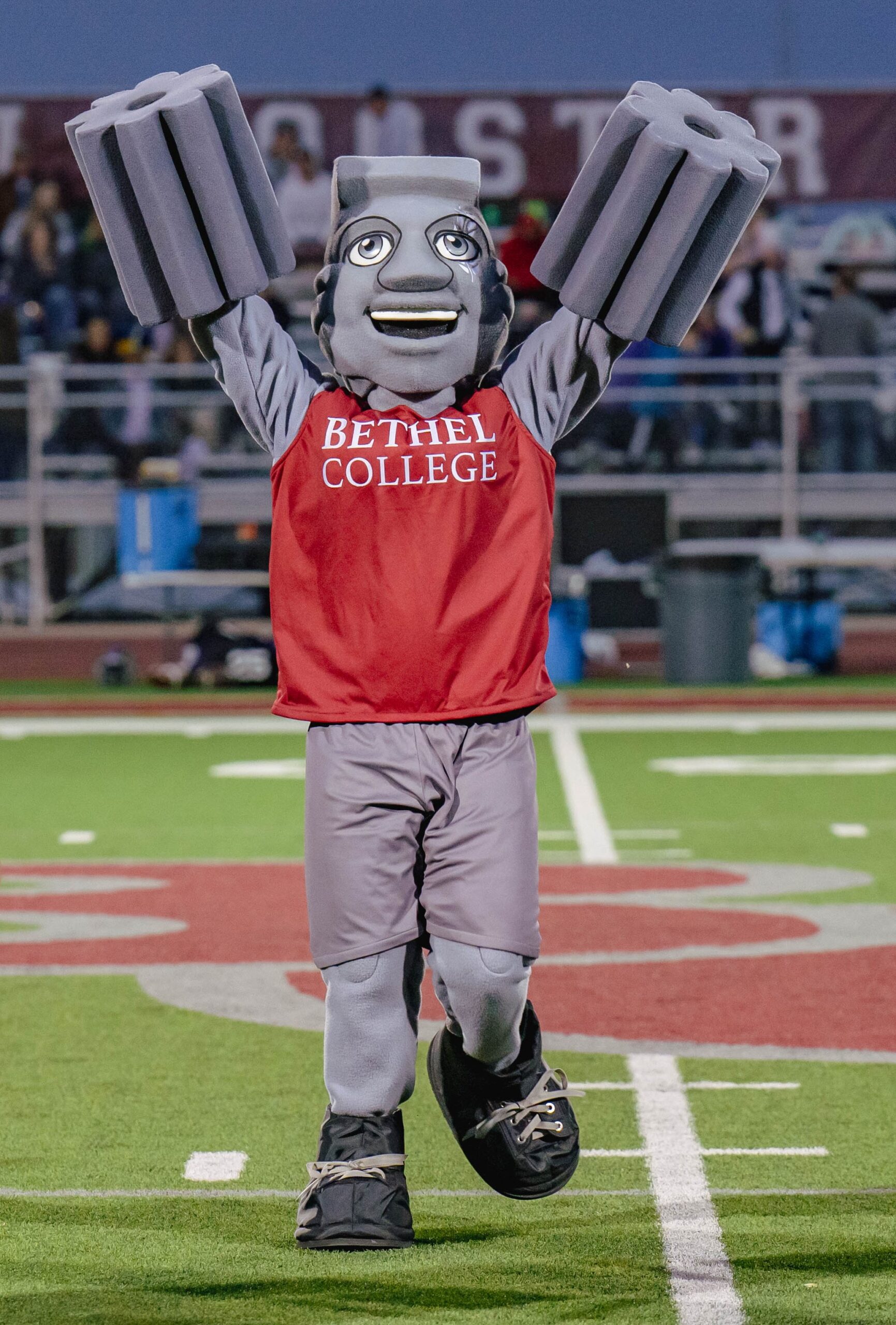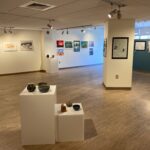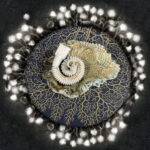Over the past decade, both walking and listening have become increasingly important to Dr. Rachel Epp Buller, professor of visual arts and design at Bethel College – in her art, her teaching and her daily life.
So is finding ways to engage the community. Most recently, that’s been through a Bethel faculty speaker series, “Walking the Talk: Listening in Our Disciplines,” that took place throughout the semester; the second iteration of her Bethel class Slow Art for Fast Times; and now a one-day public event, April 27 on the Bethel campus.
“Walking the Talk: Listening Relationships in a Changing Climate” is free and open to all. It begins at 9 a.m. in Krehbiel Auditorium in Luyken Fine Arts Center.
The symposium is both an extension of Slow Art for Fast Times and a culmination of the speaker series.
It is free thanks in part to funding from the Lena Waltner Endowment for the Art Department and the Milford Greer Fine Arts Endowment at Bethel College.
The interdisciplinary symposium features presenters who consider the urgency of listening within the context of a changing climate.
Listening might manifest as aural skills (using your ears), interpersonal connections or being tuned to local ecologies – all in the service of finding ways to learn and to build, renew and repair relationships.
“Artists and scientists, writers and scholars will share how they ‘walk the talk’ of listening and being in relationship, across communities and across species,” Buller said. “Symposium attendees will also have opportunities to participate in experiential activities that center walking and listening.”
Buller’s current academic research is on walking as a form of listening. In addition, she has been partnering with Dr. Sheena Wilson at the University of Alberta, Canada, to research walking as a method of embodied climate response.
Wilson, professor of media and communications, will give the symposium’s keynote address, “Relational Listening as Climate Action.”
“Climate change is the result of broken relationships between us and our environment,” Wilson said. “This talk will discuss my ongoing journey to reconnect with the lands, places, people and more-than-human species that are also living and dying through the climate crisis – and how we can individually and collectively act.”
Other speakers throughout the day come from around Kansas.
Dr. Ben Reed, assistant professor of biology at Washburn University, Topeka, will speak about the insights on climate change he’s gained from literally walking among box turtles over the past decade.
Dr. Joey Orr, Mellon Curator at the Spencer Museum of Art at the University of Kansas, will reflect on his experience of regularly walking an outdoor labyrinth art installation, and “walking as an embodied form of making.”
Aubrey Streit Krug and Amy June Breesman from The Land Institute near Salina will talk about valuing care work in the movement toward perennial agriculture and climate resilience.
Public muralist Dave Lowenstein, Lawrence, and Sydney Pursel, curator for public practice at the Spencer Museum, will describe the Iⁿ‘zhúje‘waxóbe / Sacred Red Rock Project that, under leadership from members of the Kaw Nation, has been focused on the return and relocation of Iⁿ‘zhúje‘waxóbe, a red Siouxan quartzite boulder, from a park in Lawrence to the Kaw people.
Sheryl Wilson, executive director of the Kansas Institute for Peace and Conflict Resolution, will explore listening in relationship while carefully letting go of judgment, highlighting the use of circle practice.
Symposium participants can choose from three participatory breakout sessions: walks led by students in the Slow Art for Fast Times class; a racial healing circle with Sheryl Wilson and others; and walking and listening through radio telemetry with Reed.
The symposium will conclude with a debriefing and wrap-up, and then a reception featuring North Newton’s own Salted Creamery ice cream.
Bethel is a four-year liberal arts college founded in 1887 and is the oldest Mennonite college in North America. Bethel ranks at #23 in the U.S. News & World Report rankings of “Best Regional Colleges Midwest” for 2023-24. Bethel was the first Kansas college or university to be named a Truth, Racial Healing and Transformation (TRHT) Campus Center, in 2021. For more information, see http://www.bethelks.edu













